 Turkish-backed terrorists have massacred civilians in Kobanê. Photo: Kurdish Resistance & Liberation/Facebook.
Turkish-backed terrorists have massacred civilians in Kobanê. Photo: Kurdish Resistance & Liberation/Facebook.
-
 Turkish-backed terrorists have massacred civilians in Kobanê. Photo: Kurdish Resistance & Liberation/Facebook.
Turkish-backed terrorists have massacred civilians in Kobanê. Photo: Kurdish Resistance & Liberation/Facebook.
-
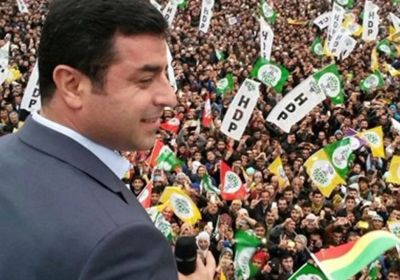
A delegation of six elections monitors sponsored by the Peace in Kurdistan Campaign to observe the June 7 Turkish election witnessed a stunning result took the left-wing Kurdish-based Peoples Democratic Party (HDP) into parliament for the first time.
-
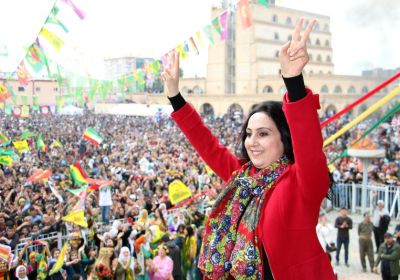 In the June 7 Turkish elections, President Recep Tayyip Erdogan's Justice and Development Party (AKP), which has ruled Turkey since 2002, won the largest vote and share of the new parliament – 258 of the 550 seats. But in a dramatic rise in its vote, the left-wing People's Democratic Party (HDP) came equal third, winning 80 seats.
In the June 7 Turkish elections, President Recep Tayyip Erdogan's Justice and Development Party (AKP), which has ruled Turkey since 2002, won the largest vote and share of the new parliament – 258 of the 550 seats. But in a dramatic rise in its vote, the left-wing People's Democratic Party (HDP) came equal third, winning 80 seats. -
 One of those injured in June 5 bombing of HDP election rally casts their vote.
One of those injured in June 5 bombing of HDP election rally casts their vote.
-
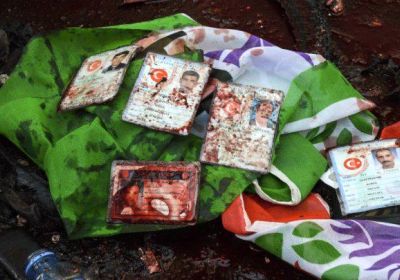
Two blasts ripped through a rally of the left-wing HDP (People’s Democratic Party) in the city of Amed (Diyarbakir) southeastern Turkey (North Kurdistan) on June 5, killing four people and injuring more than 400 just two days before a general election, the Dicle News Agency (DIHA) said.
-
 Photo: Kurdpress.com.
The June 7 elections to Turkey’s Grand National Assembly are shaping up to be the most important in a long time. The bold decision of the People’s Democratic Party (HDP) to run as a party and strive to exceed the grossly undemocratic 10% threshold needed to win representation in parliament has put the group at the political centre stage.
Photo: Kurdpress.com.
The June 7 elections to Turkey’s Grand National Assembly are shaping up to be the most important in a long time. The bold decision of the People’s Democratic Party (HDP) to run as a party and strive to exceed the grossly undemocratic 10% threshold needed to win representation in parliament has put the group at the political centre stage.
-
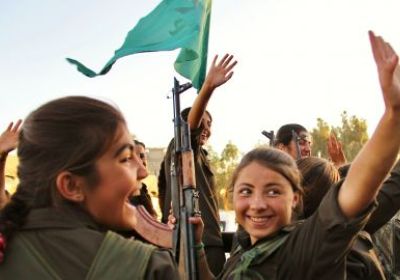 War planes from the US and its allies bombed the village of Birmehli in northern Syria on the night of April 30. US Central Command spokesperson Major Curtis Kellogg claimed that at least 50 fighters from the self-styled Islamic State (IS) group were killed and there was “no indication that any civilians were killed”. However, human rights groups, including the Britain-based Syrian Observatory for Human Rights (SOHR), have reported that all the casualties were civilians: 64 people, including 31 children.
War planes from the US and its allies bombed the village of Birmehli in northern Syria on the night of April 30. US Central Command spokesperson Major Curtis Kellogg claimed that at least 50 fighters from the self-styled Islamic State (IS) group were killed and there was “no indication that any civilians were killed”. However, human rights groups, including the Britain-based Syrian Observatory for Human Rights (SOHR), have reported that all the casualties were civilians: 64 people, including 31 children. -
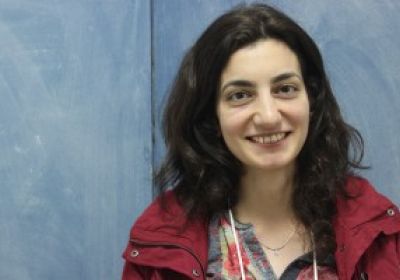 Meral Cicek (pictured) is the chair of Kurt Kadin Iliskiler Merkezi, the Kurdish Centre for Women's Affairs in Erbil, in the autonomous Kurdish Region in northern Iraq). Cicek spoke to the Rosa Luxemburg Foundation’s Florian Wilde during the World Social Forum (WSF) in Tunis last month. It has been translated by Leandros Fischer. * * *
Meral Cicek (pictured) is the chair of Kurt Kadin Iliskiler Merkezi, the Kurdish Centre for Women's Affairs in Erbil, in the autonomous Kurdish Region in northern Iraq). Cicek spoke to the Rosa Luxemburg Foundation’s Florian Wilde during the World Social Forum (WSF) in Tunis last month. It has been translated by Leandros Fischer. * * * -
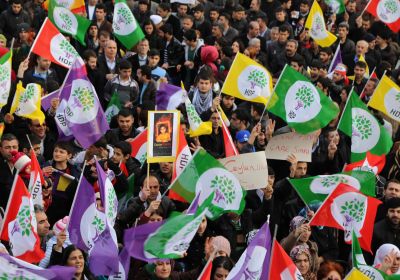
A lot is at stake in Turkey’s parliamentary elections to be held on June 7 — for the ruling Justice and Development Party (AKP) as well as the oppressed Kurdish population.
-
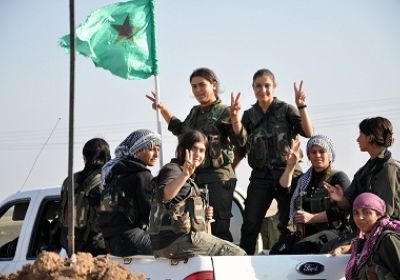 A largely unknown region to the rest of the world became one of the most talked about globally in recent months. Kobane is a town that suffered a too-harsh fate. Innocent civilians never think that one day they would face massacres — except that being a Kurd in a town like Kobane (in a largely Kurdish area in the north-west of the Syrian state), means you face such things.
A largely unknown region to the rest of the world became one of the most talked about globally in recent months. Kobane is a town that suffered a too-harsh fate. Innocent civilians never think that one day they would face massacres — except that being a Kurd in a town like Kobane (in a largely Kurdish area in the north-west of the Syrian state), means you face such things. -
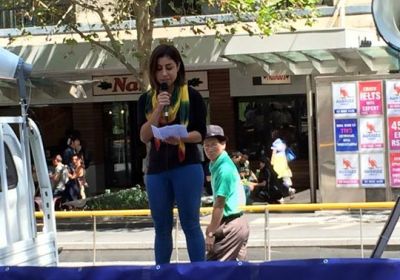 The following speech was delivered on behalf of the Kurdish Women’s Movement by Seval Ulus to the International Women’s Day rally in Melbourne on March 8. * * * On the anniversary of the March 8, International Women’s Day, women around the world are continuing to resist against the patriarchal system. Over a hundred years ago working women stood up against an oppressive system that has raged for thousands of years. This March, their struggle is still echoing on the streets of the world. The resistance against inequality, sexism and violence is growing by the day.
The following speech was delivered on behalf of the Kurdish Women’s Movement by Seval Ulus to the International Women’s Day rally in Melbourne on March 8. * * * On the anniversary of the March 8, International Women’s Day, women around the world are continuing to resist against the patriarchal system. Over a hundred years ago working women stood up against an oppressive system that has raged for thousands of years. This March, their struggle is still echoing on the streets of the world. The resistance against inequality, sexism and violence is growing by the day. -
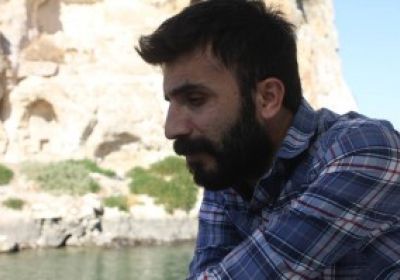 Kurdish journalist Ozgur Amed was sentenced on February 21 to three years in prison for political activism for the rights of the Kurdish people, Firat News Agency reported on February 25. The 7th Criminal High Court of Diyarbakir sentenced him under Turkish Penal Code Article 220/6 for “committing an illegal organisation crime while not being an illegal organisation member”.
Kurdish journalist Ozgur Amed was sentenced on February 21 to three years in prison for political activism for the rights of the Kurdish people, Firat News Agency reported on February 25. The 7th Criminal High Court of Diyarbakir sentenced him under Turkish Penal Code Article 220/6 for “committing an illegal organisation crime while not being an illegal organisation member”.